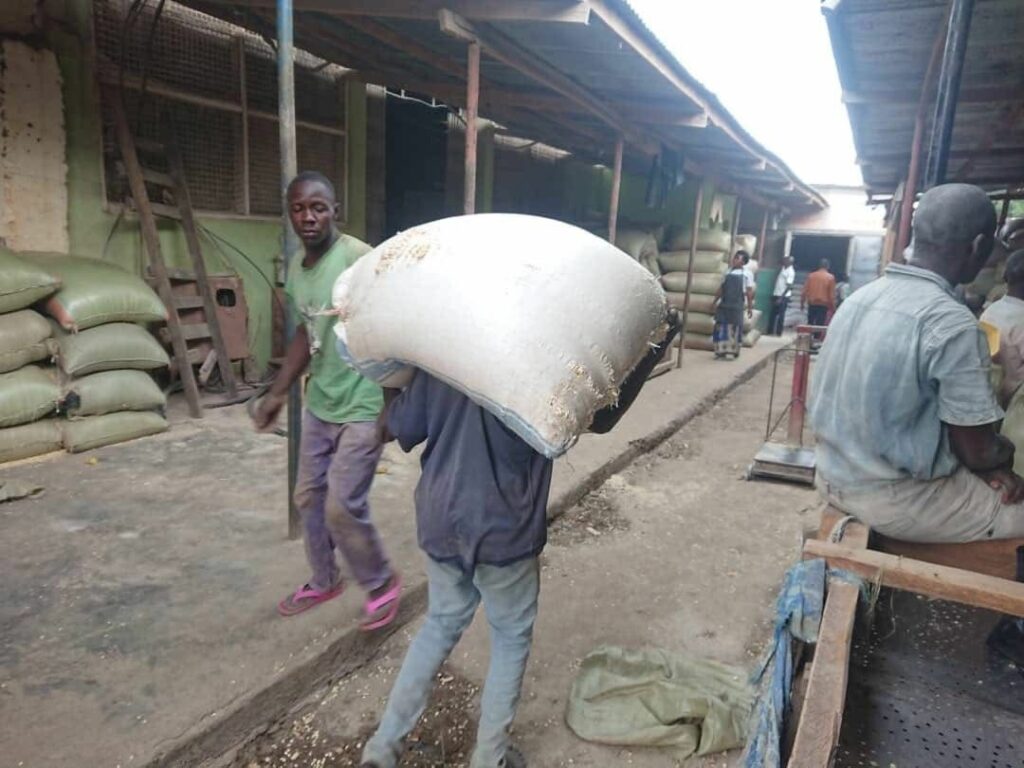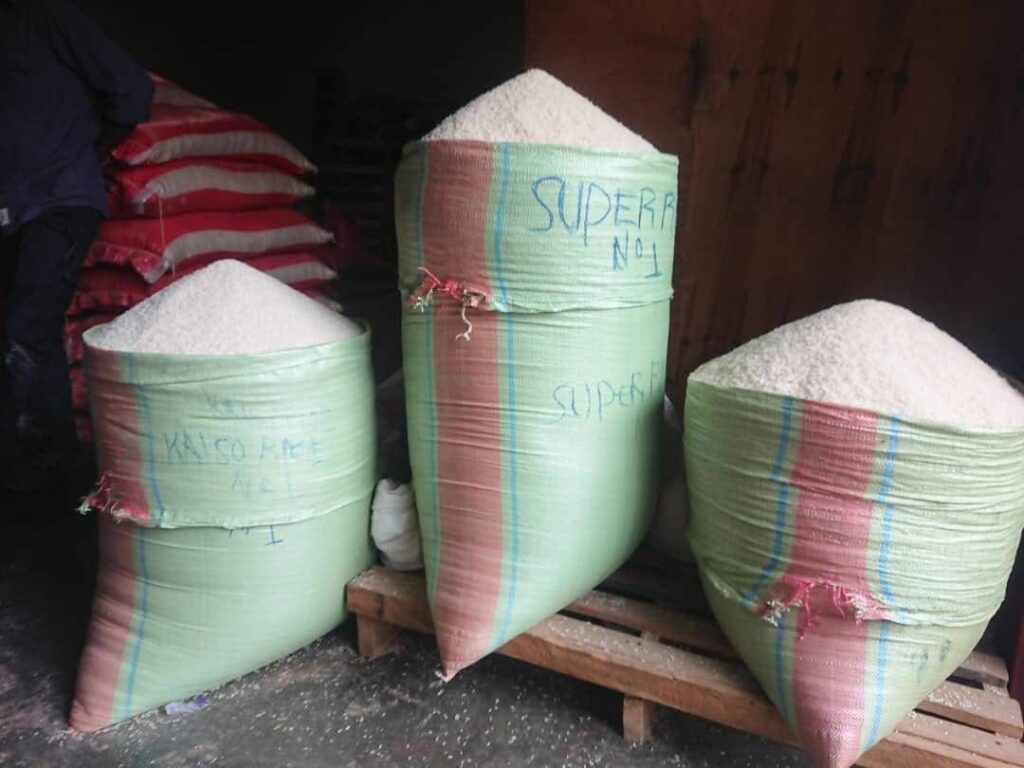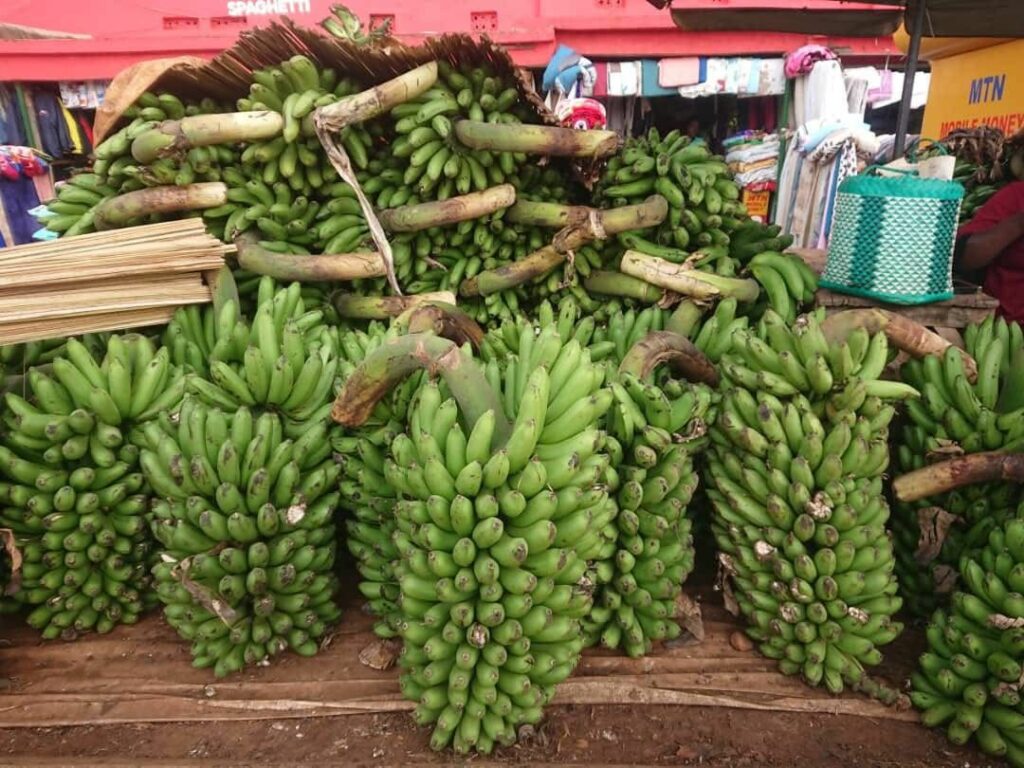
 Time FM
Time FM

 Time FM
Time FM
17 June 2025, 8:25 pm

By Shadrach Bethel Afayo
Traders in Mbale city are grappling with persistently high food prices despite the ongoing harvest season for crops like beans and rice— a situation they overwhelmingly attribute to the impacts of climate change.
Many believe that the increasing frequency of erratic weather patterns, delayed rains, prolonged droughts, and shifting seasons are affecting crop yields and logistics, driving up food prices across the board.
In an afternoon tour of the Industrial Area and Bugwere Road Market, multiple traders shared their concerns, pointing to the deeper, long-term effects of environmental disruption rather than temporary economic fluctuations.
Agnes Kizza, a maize produce dealer in Mbale’s Industrial Area Market, says that inconsistent rainfall this year has led to poor maize harvests, making prices soar at a time when they would usually be dropping.
“The rains are no longer predictable like before. The planting season was delayed, and many farmers lost their early crops due to intense heat in March and April,” she said. “What we are harvesting now is less than half of what we got last year.”
She adds that while high fuel prices and taxes remain a concern, it is the erratic weather that has made supply unreliable and costs unpredictable.

According to the Uganda National Meteorological Authority (UNMA), Mbale and surrounding districts have experienced an average temperature rise of 1.3°C over the last two decades, and rainfall patterns have become more erratic with an increase in dry spells of up to 30% in the last ten years.
Crop prices and shifting consumer demand
A look at current food prices in Bugwere Road Market, as shared by grocery dealer Michael Namoni, confirms the upward trend for key staples:
Maize flour: 1½ Class – 2,600/=, 2nd Class – 2,700/=, 1st Class – 3,100/=
Rice: Kaiso – 3,800/=, Super – 5,000/=
Irish potatoes: 1 kilo – 800–1,000/=, Basin – 15,000/=
Matooke: Small bunch – 8,000–10,000/=, Big bunch – 25,000/=
However, not all prices are climbing. Traders say some crops like matooke and Irish potatoes are experiencing temporary price dips because they are less climate-sensitive or have shorter growing cycles.
Beatrice Nambozo, a vendor in Bugwere Road Market who deals in bananas (matooke), explains that the traditional farming calendar is now unreliable due to climate change.
“We can no longer rely on the seasons to guide our farming or pricing. Even matooke is changing — what we harvest in June now feels more like what we used to get in October,” she noted.

Global trends vs. Local realities
Husama Waswa, a rice trader in the Industrial Area, acknowledges the role of global economic factors but insists that climate-related supply challenges are more to blame for local inflation.
“It’s true the world is facing a crisis, but our problem here is climate change. Floods washed away many rice fields in Butaleja and Budaka earlier this year. Even the dry areas like Pallisa had unexpected hailstorms,” he shared.
He says traders are forced to travel longer distances to source produce, further raising transportation and storage costs, and ultimately passing them to consumers.
Bonny Mukilo, an Irish potato trader, says the climate crisis is forcing both farmers and consumers to make new choices.
“More people now eat Irish because maize and rice have become too expensive. But even Irish is getting affected — too much rain leads to rot, and dry spells lower the yields,” he said.

According to the National Climate Change Policy of Uganda, the country loses between 2% and 4% of its GDP annually due to climate-related disasters, especially in agriculture, which employs over 70% of the population.
Traders are now calling on the government to implement climate-resilient agricultural policies, invest in irrigation, and subsidise climate-smart seeds and practices.
Agnes Kizza also hopes this financial year’s budget will focus and address more on climate change adaptation.
“If the government can support irrigation and reduce taxes on farm inputs, we can produce consistently even when the rains fail,” she said. “Fuel subsidies are good, but we also need support to farm better in this new climate.”
As climate change tightens its grip on Eastern Uganda, traders in Mbale city are urging the government to prioritise climate-resilient agriculture and infrastructure in the upcoming national budget. Without timely interventions, they warn, the combined pressure of unpredictable weather, reduced yields, and rising costs will continue to drive food prices beyond the reach of ordinary Ugandans — deepening food insecurity in the region.